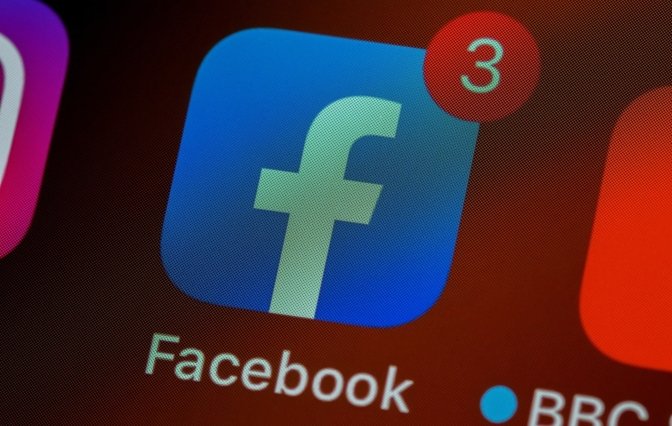Facebook guidelines explicitly allow calls for death of public figures
Facebook's anti-harassment policies are much more lenient for public figures, even allowing uses to call for celebrity deaths in most cases, leaked moderation guidelines show.

Credit: Brett Jordan
The Guardian has obtained a trove of Facebook bullying and moderation guidelines, and they show that there are major differences between how the social media platform handles harassment of public and private individuals.
According to Facebook, public figures range from celebrities to those who have a large social media following or who are infrequently covered in local newspapers. It also includes any politician, no matter the level of government, and any journalist who is employed to "write/speak publicly."
These public figures, Facebook adds, are permissible targets for certain types of abuse "because we want to allow discussion, which often includes critical commentary of people who are featured in the news."
"For public figures, we remove attacks that are severe as well as certain attacks where the public figure is directly tagged in the post or comment. For private individuals, our protection goes further: we remove content that's meant to degrade or shame, including, for example, claims about someone's sexual activity," the documents read.
Facebook explicitly bans "calls for death" for private individuals. They're allowed for public figures, however, as long as they are not "purposefully exposed" to the calls. In other words, a user can call for a public figure's death, but cannot tag the figure in the post.
There is a broad exception for certain individuals who are "involuntary" public figures. Facebook defines these people as "not true celebrities, and who have not engaged with their fame." The exception is if an individual has been accused of criminal activity.
As The Guardian notes, Facebook's moderation guidelines are exhaustive, and include incredibly specific rules. For example, Facebook users are allowed to bully dead people, but only if they died before 1990. Fictional characters are also a safe target for harassment.
While "calls for death" are allowed, Facebook's policies do prohibit users making direct threats, derogatory sexualized terms, or threats to release information for public figures.
According to insiders, Facebook is planning on updating the definition of public figures to "raise the threshold in increasingly digitally engaged times." That could include additional protections for journalists or activists in high-risk situations.
"We think it's important to allow critical discussion of politicians and other people in the public eye. But that doesn't mean we allow people to abuse or harass them on our apps. We remove hate speech and threats of serious harm no matter who the target is, and we're exploring more ways to protect public figures from harassment," Facebook told The Guardian.
When asked why these guidelines are not publicly available, a Facebook spokesperson said it intends to make more documents available to the public and claimed that the company already provides "more more transparency than any technology company."

Credit: Brett Jordan
The Guardian has obtained a trove of Facebook bullying and moderation guidelines, and they show that there are major differences between how the social media platform handles harassment of public and private individuals.
According to Facebook, public figures range from celebrities to those who have a large social media following or who are infrequently covered in local newspapers. It also includes any politician, no matter the level of government, and any journalist who is employed to "write/speak publicly."
These public figures, Facebook adds, are permissible targets for certain types of abuse "because we want to allow discussion, which often includes critical commentary of people who are featured in the news."
"For public figures, we remove attacks that are severe as well as certain attacks where the public figure is directly tagged in the post or comment. For private individuals, our protection goes further: we remove content that's meant to degrade or shame, including, for example, claims about someone's sexual activity," the documents read.
Facebook explicitly bans "calls for death" for private individuals. They're allowed for public figures, however, as long as they are not "purposefully exposed" to the calls. In other words, a user can call for a public figure's death, but cannot tag the figure in the post.
There is a broad exception for certain individuals who are "involuntary" public figures. Facebook defines these people as "not true celebrities, and who have not engaged with their fame." The exception is if an individual has been accused of criminal activity.
As The Guardian notes, Facebook's moderation guidelines are exhaustive, and include incredibly specific rules. For example, Facebook users are allowed to bully dead people, but only if they died before 1990. Fictional characters are also a safe target for harassment.
While "calls for death" are allowed, Facebook's policies do prohibit users making direct threats, derogatory sexualized terms, or threats to release information for public figures.
According to insiders, Facebook is planning on updating the definition of public figures to "raise the threshold in increasingly digitally engaged times." That could include additional protections for journalists or activists in high-risk situations.
"We think it's important to allow critical discussion of politicians and other people in the public eye. But that doesn't mean we allow people to abuse or harass them on our apps. We remove hate speech and threats of serious harm no matter who the target is, and we're exploring more ways to protect public figures from harassment," Facebook told The Guardian.
When asked why these guidelines are not publicly available, a Facebook spokesperson said it intends to make more documents available to the public and claimed that the company already provides "more more transparency than any technology company."

Comments
My own experience. Not yours. Not anyone else's.
What's good for the goose is good for the gander. I don't think Apple has the spine to actually practice what it preaches though.